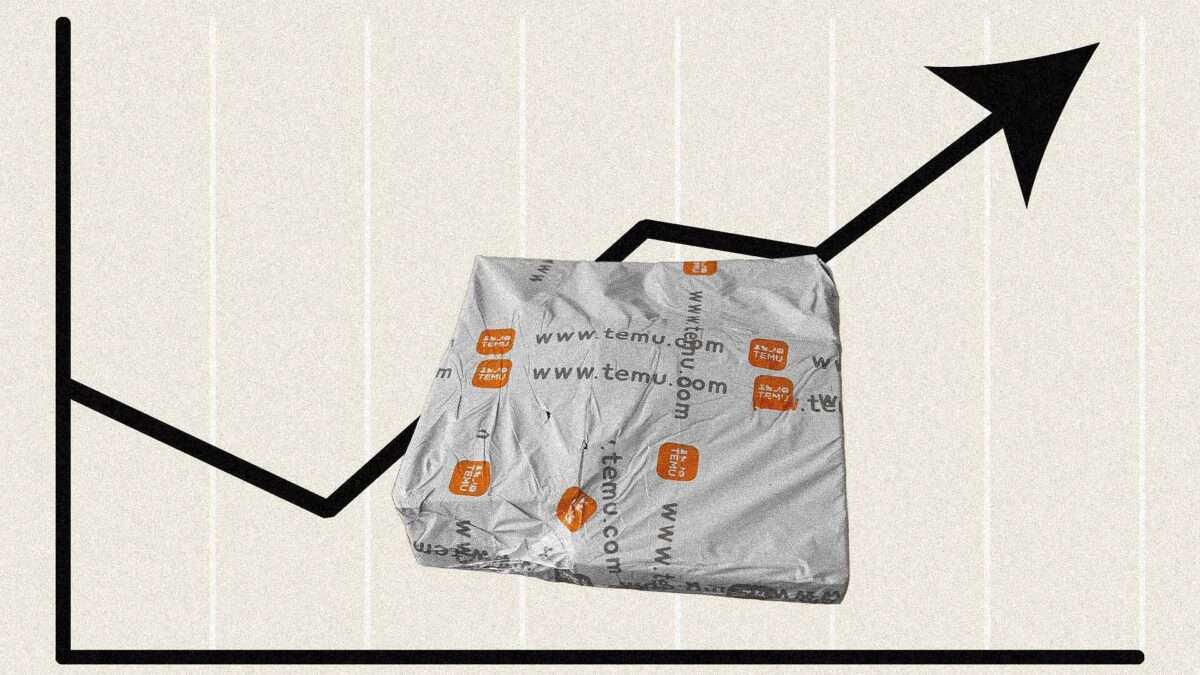The "reciprocal" tariffs that President Donald Trump announced this week are based on a flagrant fallacy: the idea that there is something inherently suspicious about trade deficits. Unlike many of the positions that Trump has adopted as a politician, this one seems heartfelt and long predates his presidential campaigns. His comments on the subject during the last four decades reflect an unshakable belief that international trade is "fair" only when the dollar value of imports from any given country happens to match the dollar value of U.S. exports to that country.
Trump's long history of economic illiteracy suggests he is determined to pursue this trade war, which features import taxes that are much steeper and far broader than the ones he imposed during his first term, no matter how much pain it inflicts on American consumers and businesses. If there is any cause for hope on that score, it is Trump's similarly long-standing eagerness to look like a winner by making shrewd deals. The tension between those two instincts explains why Trump contradicts himself by presenting his tariffs as both a short-term bargaining tactic and a long-term strategy for raising revenue and boosting the U.S. economy.
When Trump published his first book, The Art of the Deal, in 1987, he saw Japan as America's main economic nemesis. "For decades now," he complained, "they have become wealthier in large measure by screwing the United States with a self-serving trade policy that our political leaders have never been able to fully understand or counteract." Although China has replaced Japan as the primary threat, Trump is still believes that other countries "become wealthier" by "screwing the United States," the grievance at the heart of his new tariffs.
Thirteen years later in The America We Deserve, Trump explained the logic underlying that conviction. "You only have to look at our trade deficit to see that we are being taken to the cleaners by our trading partners," he wrote. "We've fallen into the habit of mistaking the easy availability of cheap, sweatshop-produced product for solid and sustainable economic stability. America has been ripped off by virtually every country we do business with."
Voluntary economic exchanges, whether or not they cross borders, manifestly benefit both parties; otherwise, they would not happen. But as Trump sees it, trade is a zero-sum game in which the rules are rigged against the United States.
Although Trump presented trade deficits as conclusive evidence of chicanery in The America We Deserve, he did not offer tariffs as a solution. The word does not even appear in the book—a pretty striking omission for someone who would later describe himself as "Tariff Man" and declare that "tariffs are the greatest thing ever invented." Back then, Trump thought the best way to reduce "our trade deficit" was "tougher negotiations, not protectionist walls around America."
Those negotiations, Trump said, would aim to eliminate trade barriers erected by foreign governments. "We need to ensure that foreign markets in Japan and France and Germany and Saudi Arabia are as open to our products as our country is to theirs," he wrote. "Our long-term interests require that we cut better deals with our world trading partners….We need to renegotiate fair trade agreements."
As Trump saw it, this was his forté as a consummate dealmaker. "I would put the right people in charge of negotiation and would get involved myself," he said. "If President Trump does the negotiating, we'll get a better deal for American workers and their families, and our economy will not be as vulnerable to global pressures as it is today. Watch our trade deficit dwindle."
If he were president, Trump said, "I would take personal charge of negotiations with the Japanese, the French, the Germans, and the Saudis. Our trading partners would have to sit across the table from Donald Trump, and I guarantee you the rip-off of the United States would end."
Trump did mention tariffs in his 2011 book Time to Get Tough. "Either China plays by the rules or we slap tariffs on Chinese goods," he wrote. "End of story." As evidence that China was not playing by the rules, he cited its trade surplus, which to his mind meant "they are laughing at us."
Trump complained about "China's currency manipulation and other unfair trade practices," including inadequate protection for intellectual property. But his beef was not limited to specific policies. "Right now, we are running a massive $300 billion trade deficit with China," he said. "That means every year China is making almost $300 billion off the United States." Since Trump refused to acknowledge the value that Americans got in exchange for that money, he saw that situation as intolerable.
To back up that view, Trump cited Peter Navarro, a longtime proponent of "economic nationalism" who would later become his main trade adviser. "Peter Navarro points out that our trade deficit is costing us roughly 1 percent of GDP growth each year, which is a loss of almost 1 million jobs annually," Trump wrote. Even in the absence of identifiable "unfair trade practices," in other words, a gap between exports and imports is economically damaging.
"I'm for free and fair trade," Trump wrote. "Open markets are the ideal, but if one guy is cheating the whole time, how is that free trade?…Free trade requires having fair rules that apply to everyone….Unfair trade is not free trade." But Trump's definition of fairness always came back to trade balances. As long as Chinese exports to the United States exceeded U.S. exports to China, he thought, China clearly was not playing fair. Or as Trump put it when he imposed tariffs on Chinese goods during his first term, "our trade imbalance is just not acceptable."
The belief that trade deficits must reflect "cheating" is the explicit premise of the calculations underlying Trump's "reciprocal" tariffs. In setting those rates, a White House official told the New York Post this week, the administration assumed that "the trade deficit that we have with any given country is the sum of all unfair trade practices, the sum of all cheating."
Trump's 2015 campaign book Great Again (originally titled Crippled America) featured more in the same vein. "Our trade deficit has been a dangerous drag on our economy," he averred. "We've seen the Chinese taking tremendous advantage of our trade policies." He said America needed "a fair balance of trade," which required "better trade agreements."
During his first term, Trump was still claiming to favor free trade in theory even while rejecting it in practice. "I believe strongly in free trade, but it also has to be fair trade," he said in his first address to Congress. "It's been a long time since we had fair trade." That much was obvious, he thought, given that "our trade deficit in goods with the world last year was nearly $800 billion."
In America, Trump told the U.N. General Assembly in 2017, "we seek stronger ties of business and trade with all nations of good will, but this trade must be fair and it must be reciprocal." He hit the same theme in a 2018 speech to the World Economic Forum: "We cannot have free and open trade if some countries exploit the system at the expense of others. We support free trade, but it needs to be fair and reciprocal." He added that "the United States is prepared to negotiate mutually beneficial, bilateral trade agreements with all countries." Speaking to the Veterans of Foreign Wars later that year, Trump clarified that he wanted "fair trade deals, not stupid trade deals."
What does Trump mean by "fair trade"? In Great Again, he described Israel as "our best ally" and "a fair-trading partner." The Israeli government recently made its trade policy even fairer by eliminating all of its remaining tariffs on imports from the United States. But none of that stopped Trump from announcing a 17 percent tariff on all Israeli imports this week. As with his other "reciprocal" tariffs, the rate is based on the size of Israel's trade surplus with the United States. So according to Trump, trade can be "unfair" even when it's fair.
In pursuit of "fair trade" during his first term, Trump imposed various tariffs, withdrew from the Trans-Pacific Partnership, and renegotiated the North American Free Trade Agreement (now the United States–Mexico–Canada Agreement). How did that work out? The overall U.S. trade deficit (including services as well as goods) rose from $503 billion in 2016 to $626 billion during his last year in office. So even measured by the standard that Trump prefers, his trade policies were a failure, leaving aside the costs they imposed on American businesses and consumers.
Unfazed by that record, Trump is going bigger—a lot bigger. While Trump's first-term import taxes "roughly doubled the [average] tariff rate, to around 3 percent," University of Michigan economist Justin Wolfers notes, "Trump's latest round pushes our current rate to around 15 times its 2016 level"—"higher than the infamous Smoot-Hawley tariffs," which aggravated the Great Depression.
For Americans concerned about the impact this new, much bigger trade war will have on their household budgets and investments, the question is which Trump will prevail: the one who sees tariffs as a boon to the economy and a reliable source of easy revenue or the one who sees them as a bargaining tool that can be used to extract concessions from other countries, such as the elimination of trade barriers or assistance in border control and the war on drugs. Does Trump want to strike a deal, or is he determined to see this through in the hope that tariffs will ultimately boost domestic production and manufacturing jobs?
"I think we're going to wait and see how this plays out," Treasury Secretary Scott Bessent said when asked whether the new tariffs will be permanent. Conservative journalist Tim Carney thought that was telling: "This is key. The tariffs cannot cultivate domestic manufacturing, because they were made to be contingent, temporary, negotiable—because for our Quid Pro Quo President, everything is always on the table."
Still, given Trump's obsession with trade deficits, it is hard to imagine what sort of deal would satisfy him. If trade is "fair and reciprocal" only when imports equal exports, there is not much that a country like Israel can do to address Trump's grievance, short of blocking mutually beneficial trade. But if Trump is willing to declare victory without achieving his avowed goals (as he did during his first term), this trade war could end sooner than his rhetoric suggests. We have to hope that Trump's vanity prevails over his principles.
The post Trump's Longtime Obsession With Trade Deficits Suggests His Tariffs Won't End Soon appeared first on Reason.com.











 Bengali (Bangladesh) ·
Bengali (Bangladesh) ·  English (United States) ·
English (United States) ·